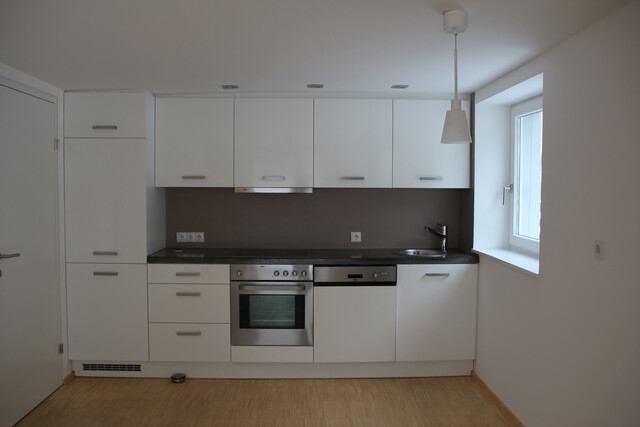Vienna's living rooms become saunas in the summer - and the politicians look on

The heat stress as a result of the climate crisis is well documented, but the focus is rarely on indoor spaces. Measurements in nine Viennese apartments over the current summer have now examined how these react to outside temperatures depending on occupancy, year of construction, and location. The results of the survey by Volkshilfe, Boku Vienna, and Greenpeace were described as "alarming" by the spokesperson of the environmental NGO, Jasmin Duregger, at a press conference on Thursday.
Heat Accumulates Especially in Old Apartments
This assessment is particularly true for unrenovated old apartments where many people live. These heat up faster during the day and cool down more slowly than other building types. "In such apartments with direct sun exposure and dense occupancy, there were temperatures over 30 degrees Celsius, which did not cool down below 28 degrees at night," said Herbert Formayer, professor at the Institute of Meteorology at the University of Natural Resources and Life Sciences (Boku) Vienna.
And here the social component of the "heat trap apartment" becomes apparent, as it is especially the poorer population groups that have to live in such spaces. "Those with little money often live in poorly insulated rooms and also have limited access to healthcare. Those who are economically or socially disadvantaged feel the effects the most," added Daniela Haluza, environmental physician and professor at the Medical University of Vienna.
Care-Dependent and Low-Income Individuals Most Affected
"244,000 children and adolescents have to live in such conditions," said Erich Fenninger, director of Volkshilfe, - and alongside them, care-dependent individuals and people with low incomes are the biggest victims of the climate crisis. Haluza also pointed out the role of heat as a "societal problem." Not only does the cardiovascular system often reach its limits here: "That's the physical side, but with rising temperatures, a psychological component also comes into play, ranging from irritability to increased aggression" - and then heat becomes a social problem.
It is also known that the elderly, the sick, and young children are at increased risk of heat exposure. "Climate vulnerability" can be seen as dynamic over a lifetime, which can increase due to health limitations or simply by aging. Overall, it is considered that heat protection, like health protection, should have societal importance.
Apartments Often Like Saunas
If this heat protection is missing in the apartments, it has enormous consequences, reported Fenninger from practice. Many families would say that their overly hot apartments feel like a sauna, with heat rashes in children being commonplace. Countermeasures are not affordable for this group, and moving is not an option. The psychological burdens increase with the heat, "the children react by withdrawing and isolating themselves." Climate and social policies must therefore be considered together, demanded Fenninger. Affordable and climate-friendly living space must be created because "climate change exacerbates social injustice."
Recognize Heat as a Housing Policy Fact
Duregger from Greenpeace demanded in this context that the government must recognize heat as a housing policy fact. In addition to renovating old apartments with external shading as a fixed component, rent price formation must also be addressed. "Current heat protection plans often neglect the temperatures in the apartments," said Duregger. But adaptation also has its limits here, she concluded, pointing to the importance of climate protection measures.
The Vienna Greens responded in a statement with the demand for an amendment to the building regulations. This must be adjusted "to account for the advancing climate crisis. Cooling measures such as building component activation, facade greening, or external blinds must urgently become standard," quoted the Green housing spokesperson and club chairman Georg Prack.
(APA/Red)
This article has been automatically translated, read the original article here.
Du hast einen Hinweis für uns? Oder einen Insider-Tipp, was bei dir in der Gegend gerade passiert? Dann melde dich bei uns, damit wir darüber berichten können.
Wir gehen allen Hinweisen nach, die wir erhalten. Und damit wir schon einen Vorgeschmack und einen guten Überblick bekommen, freuen wir uns über Fotos, Videos oder Texte. Einfach das Formular unten ausfüllen und schon landet dein Tipp bei uns in der Redaktion.
Alternativ kannst du uns direkt über WhatsApp kontaktieren: Zum WhatsApp Chat
Herzlichen Dank für deine Zusendung.


